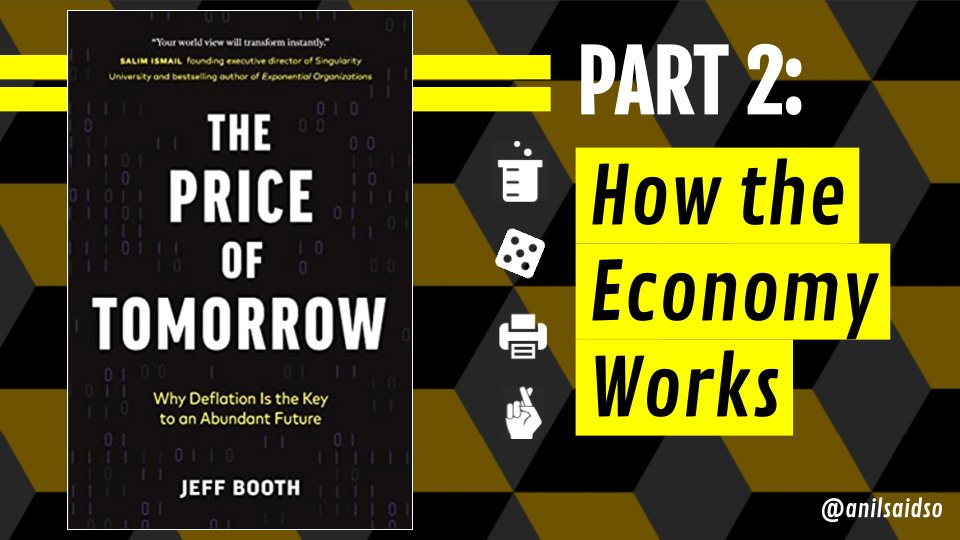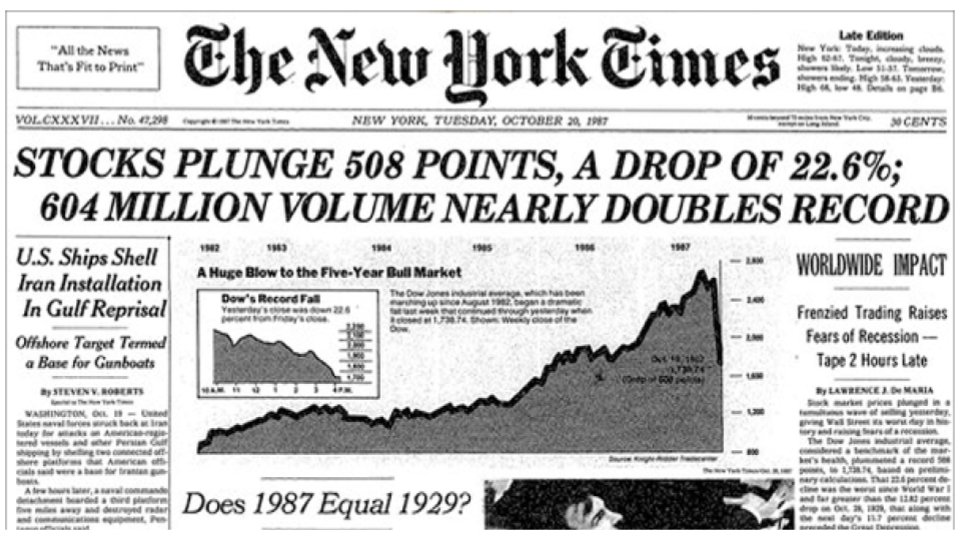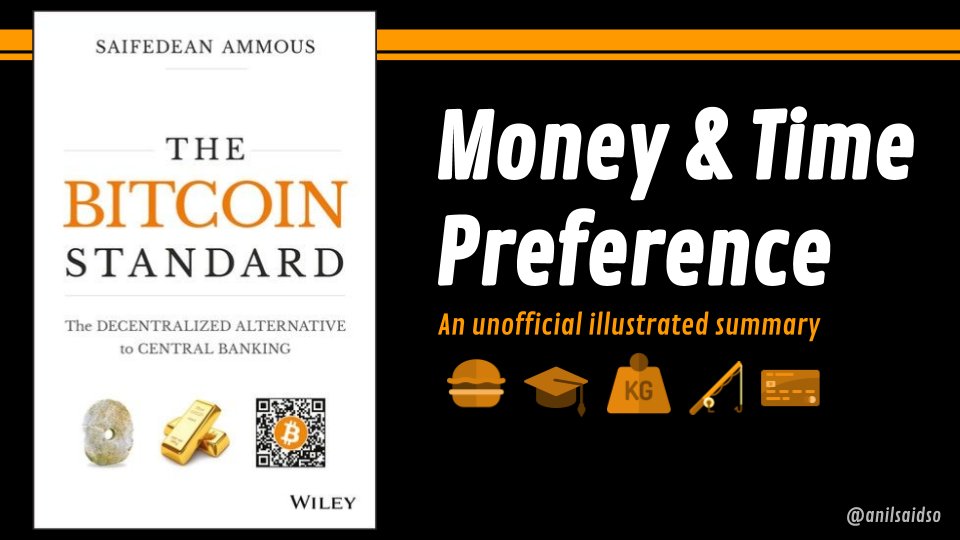
'The Lessons of History' by Will & Ariel Durant is a masterclass in the predictability of human nature.
It teaches us what changes over time and what remains constant. Use it to guide your thinking.
“In every age men have been dishonest and governments have been corrupt.”
🧵
It teaches us what changes over time and what remains constant. Use it to guide your thinking.
“In every age men have been dishonest and governments have been corrupt.”
🧵

1/ “Generations of men establish a growing mastery over the earth, but they are destined to become fossils in its soil.
Human history is a brief spot in space, and its first lesson is modesty.”
Human history is a brief spot in space, and its first lesson is modesty.”
2/ “life is competition. peaceful when food abounds, violent when the mouths outrun the food.
We are acquisitive, greedy, and pugnacious because our blood remembers millenniums through which our forebears had to chase and fight and kill in order to survive.”
We are acquisitive, greedy, and pugnacious because our blood remembers millenniums through which our forebears had to chase and fight and kill in order to survive.”

3/ “life is selection. In the competition for food or mates or power some organisms succeed and some fail. Inequality is not only natural and inborn, it grows with the complexity of civilization.”
4/ “The causes of war are the same as the causes of competition among individuals: acquisitiveness, pugnacity, and pride; the desire for food, land, materials, fuels, mastery.”
5/ “War is a nation’s way of eating. It promotes co-operation because it is the ultimate form of competition. Until our states become members of a large and effectively protective group they will continue to act like individuals and families in the hunting stage.”
6/ “life must breed.. She is more interested in the species than in the individual,
If the human brood is too numerous for the food supply, Nature has three agents for restoring the balance: famine, pestilence, and war.”
If the human brood is too numerous for the food supply, Nature has three agents for restoring the balance: famine, pestilence, and war.”
7/ “in [C.19th] England, the United States, Germany, and France the food supply kept pace with births, and the rising standard of living deferred the age of marriage and lowered the size of the family.”
8/ “A knowledge of history may teach us that civilization is a co-operative product, that nearly all peoples have contributed to it.
..by and large the poor have the same impulses as the rich, with only less opportunity or skill to implement them.”
..by and large the poor have the same impulses as the rich, with only less opportunity or skill to implement them.”

9/ “much of what we call intelligence is the result of individual education, opportunity, and experience; and there is no evidence that such intellectual acquirements are transmitted in the genes.”
10/ “Morals are the rules by which a society exhorts (as laws are the rules by which it seeks to compel) its members and associations to behavior consistent with its order, security, and growth.”
11/ “In the Middle Ages...The Roman Catholic Church laboured to reduce slavery, family feuds and national strife...established courts.
Though the Church served the state, it claimed to stand above all states, as morality should stand above power.”
Though the Church served the state, it claimed to stand above all states, as morality should stand above power.”

12/ ”The Church was manned with men who often proved biased, venal, or extortionate.
The Church stooped to fraud...and dubious miracles; for centuries it profited..
Even while preaching peace, the Church fomented religious wars..”
The Church stooped to fraud...and dubious miracles; for centuries it profited..
Even while preaching peace, the Church fomented religious wars..”
13/ “[This] allowed the philosophers to take the lead in the humanitarian movements that have alleviated the evils of our time.
[though] philosopher’s recognition that they have found no substitute for the moral function of the Church.”
[though] philosopher’s recognition that they have found no substitute for the moral function of the Church.”
14/ “The replacement of Christian with secular institutions is the culminating and critical result of the Industrial Revolution
Laws which were once presented as the decrees of a god-given king are now frankly the confused commands of fallible men.”
Laws which were once presented as the decrees of a god-given king are now frankly the confused commands of fallible men.”
15/ “Colleges once allied to churches have been captured by businessmen and scientists. The propaganda of patriotism, capitalism, or Communism succeeds to the inculcation of a supernatural creed and moral code. Holydays give way to holidays.”
16/ “Nature and history do not agree with our conceptions of good and bad; they define good as that which survives, and bad as that which goes under..”
17/ “One lesson of history is that religion has many lives, and a habit of resurrection.
As long as there is poverty there will be gods.”
As long as there is poverty there will be gods.”
18/ ”As submissive natures unite with masterful individuals to make the order and operation of a society, so the imitative majority follows the innovating minority." 

19/ “Every year...some new invention, method, or situation compels a fresh adjustment of behavior and ideas”
The influence of geographic factors diminishes as technology grows.”
The influence of geographic factors diminishes as technology grows.”
20/ “It is good that the old should resist the young, and that the young should prod the old; out of this tension, as out of the strife of the sexes and the classes, comes a creative tensile strength”
21/ “Economic development specializes functions, differentiates abilities, and makes men unequally valuable to their group.
If we divide economic history into three stages—hunting, agriculture, industry—we may expect that the moral code of one stage will be changed in the next.”
If we divide economic history into three stages—hunting, agriculture, industry—we may expect that the moral code of one stage will be changed in the next.”

22/ “Children were economic assets; birth control was made immoral.
Gradually, then rapidly and ever more widely, the Industrial Revolution changed the economic form and moral superstructure of European and American life.”
Gradually, then rapidly and ever more widely, the Industrial Revolution changed the economic form and moral superstructure of European and American life.”
23/ “children left home...to work as individuals.. in factories built to house not men but machines. Every decade the machines multiplied and became more complex;
children no longer were economic assets; marriage was delayed”
children no longer were economic assets; marriage was delayed”
24/ “Women were 'emancipated'—i.e., industrialized; and contraceptives enabled them to separate intercourse from pregnancy. The authority of father and mother lost its economic base through the growing individualism of industry.”
25/ “ the mechanization of economic production suggested mechanistic materialistic philosophies; education spread religious doubts;
The old agricultural moral code began to die.”
The old agricultural moral code began to die.”
26/ “Nature smiles at the union of freedom and equality in our utopias. For freedom and equality are sworn and everlasting enemies, and when one prevails the other dies.”
27/ “The Crusades, like the wars of Rome with Persia, were attempts of the West to capture trade routes to the East; the discovery of America was a result of the failure of the Crusades.”
28/ “The French Revolution came not because Voltaire wrote brilliant satires, but because the middle classes had risen to economic leadership, needed legislative freedom for their enterprise and trade, and itched for social acceptance and political power”
29/ “Our states, being ourselves multiplied, are what we are; they write our natures in bolder type, and do our good and evil on an elephantine scale.
the prime task of government is to establish order..”
the prime task of government is to establish order..”

30/ “Power naturally converges to a center, for it is ineffective when divided, diluted, and spread,
... in the United States; it was of no use to talk of “states’ rights” when the economy was ignoring state boundaries and could be regulated only by some central authority.”
... in the United States; it was of no use to talk of “states’ rights” when the economy was ignoring state boundaries and could be regulated only by some central authority.”
31/ “Nothing is clearer in history than the adoption by successful rebels of the methods they were accustomed to condemn in the forces they deposed.
In every age men have been dishonest and governments have been corrupt.”
In every age men have been dishonest and governments have been corrupt.”
32/ “most governments have been oligarchies—ruled by a minority, chosen either by birth,.. by a religious organization, ...or by wealth
It is unnatural..for a majority to rule, for a majority can seldom be organized for united and specific action..”
It is unnatural..for a majority to rule, for a majority can seldom be organized for united and specific action..”
33/ “If the majority of abilities is contained in a minority of men, minority government is as inevitable as the concentration of wealth; the majority can do no more than periodically throw out one minority and set up another.”
34/ “Democracy is the most difficult of all forms of government, since it requires the widest spread of intelligence, and we forgot to make ourselves intelligent when we made ourselves sovereign.”
35/ “If race or class war divides us into hostile camps, changing political argument into blind hate, one side or the other may overturn the hustings with the rule of the sword."
36/ “All deductions having been made, democracy has done less harm, and more good, than any other form of government.”
37/ “If our economy of freedom fails to distribute wealth as ably as it has created it, the road to dictatorship will be open to any man who can persuasively promise security to all..”
38/ “The struggle of socialism against capitalism is part of the historic rhythm in the concentration and dispersion of wealth." 

39/ “The capitalist, of course, has fulfilled a creative function in history: he has gathered the savings of the people into productive capital by the promise of dividends or interest;”
40/ “he has financed the mechanization of industry and agriculture, and the rationalization of distribution; and the result has been such a flow of goods from producer to consumer as history has never seen before.”
41/ “arguing that businessmen left relatively free from tolls and legislative regulation can give the public a greater abundance of food, homes, comfort, and leisure than has ever come from industries managed by politicians,.. supposedly immune to the laws of supply and demand.”
42/ “nearly every economic ability sooner or later finds its niche and reward in the... natural selection of skills; and a basic democracy rules
..the articles to be produced, and the services to be rendered, are determined by public demand rather than by governmental decree."
..the articles to be produced, and the services to be rendered, are determined by public demand rather than by governmental decree."
43/ “the bankers, watching the trends in agriculture, industry, and trade, inviting and directing the flow of capital, putting our money..to work, controlling loans and interest and enterprise, running great risks to make great gains, rise to the top of the economic pyramid.”
44/ “the men who can manage men manage the men who can manage only things, and the men who can manage money manage all.”
45/ “Perhaps it is one secret of their power that, having studied the fluctuations of prices, they know that history is inflationary, and that money is the last thing a wise man will hoard.”
46/ “every economic system must sooner or later rely upon some form of the profit motive to stir individuals and groups to productivity
Substitutes like slavery, police supervision, or ideological enthusiasm prove too unproductive, too expensive, or too transient.”
Substitutes like slavery, police supervision, or ideological enthusiasm prove too unproductive, too expensive, or too transient.”
47/ ”Since practical ability differs from person to person, the majority of such abilities...is gathered in a minority of men. The concentration of wealth is a natural result of this concentration of ability, and regularly recurs in history.”
48/ “In progressive societies the concentration may reach a point where the strength of number in the many poor rivals the strength of ability in the few rich; then the unstable equilibrium generates a critical situation,..by legislation.. or by revolution..”
49/ ”violent revolutions do not so much redistribute wealth as destroy it…
but the natural inequality of men soon re-creates an inequality of possessions and privileges, and raises to power a new minority with essentially the same instincts as in the old."
but the natural inequality of men soon re-creates an inequality of possessions and privileges, and raises to power a new minority with essentially the same instincts as in the old."
50/ “when repressed, inequality grows; only the man who is below the average in economic ability desires equality;”
51/ “Utopias of equality are biologically doomed, and the best that the amiable philosopher can hope for is an approximate equality of legal justice and educational opportunity.”
52/ “We conclude that the concentration of wealth is natural and inevitable, and is periodically alleviated by violent or peaceable partial redistribution.
..economic history is the slow heartbeat of the social organism.. of concentrating wealth and compulsive recirculation.”
..economic history is the slow heartbeat of the social organism.. of concentrating wealth and compulsive recirculation.”
53/” The fear of capitalism has compelled socialism to widen freedom, and the fear of socialism has compelled capitalism to increase equality. East is West and West is East, and soon the twain will meet.”
/END
🙏 Thanks for reading.
If you enjoyed this thread, you might also like this one:
🙏 Thanks for reading.
If you enjoyed this thread, you might also like this one:
https://twitter.com/anilsaidso/status/1338573924968251392?s=20
• • •
Missing some Tweet in this thread? You can try to
force a refresh

















